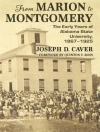Thomas Jefferson’s ideas have been so important in shaping the character and aspirations of the United States that it has proven impossible to think about the state of the nation at almost any moment without implicit or explicit reference to his words and actions. In similar fashion, each generation has understood Jefferson in the context of the central issues of its time. Jefferson has, for better or for worse, been a man for all seasons.
The essays in this collection seek to update and reevaluate several key aspects of Jefferson’s attitudes and policies in light of the newest research and at the same time take care to consider his ideas about such controversial topics as race, gender, and religion in the context of his own time and place. Simultaneously, the contributing authors analyze the relevance of Jefferson for our own age, conscious of how contemporary judgments about slavery, religion, and Native Americans, for example, shape our coming to terms with the nation’s history. Here is no simple search for a usable past, but instead a tough-minded but fair examination of a complex man who in fundamental ways represents both the promise and the problems of the American experience.
Contributors John B. Boles, Rice University * Thomas E. Buckley, Jesuit School of Theology of Santa Clara University at Berkeley * Andrew Burstein, Louisiana State University * Randal L. Hall, Rice University * Peter J. Kastor, Washington University at St. Louis * Jan Ellen Lewis, Rutgers University * Peter S. Onuf, University of Virginia * Andrew J. O’Shaughnessy, Director of the Robert H. Smith International Center for Jefferson Studies * Adam Rothman, Georgetown University * Eva Sheppard Wolf, San Francisco State University
关于作者
John B. Boles is William P. Hobby Professor of History at Rice University and the editor of the Journal of Southern History. Randal L. Hall is Adjunct Associate Professor of History at Rice University and managing editor of the Journal of Southern History.












